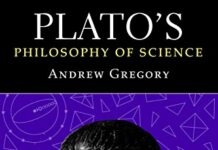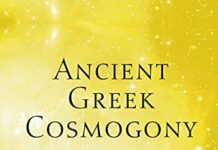
Ebook Info
- Published: 2017
- Number of pages: 160 pages
- Format: PDF
- File Size: 2.81 MB
- Authors: Andrew Gregory
Description
Medicine, anatomy, astronomy, mathematics and cosmology, science began with the Greeks, and Plato, Aristotle, Pythagoras, Archimedes and Hippocrates were amongst its stars. That man ever managed to develop a “scientific” attitude to the natural world at all is one of the true wonders of human thought.Eureka! shows how, free from intellectual and religious dogma, these early thinkers rejected myths and capricious gods and, in distinguishing between the natural and supernatural, effectively discovered nature.Andrew Gregory, Professor of History and Philosophy of Science at University College London unravels the genesis of science in this fascinating exploration of the origins of Western civilisation, and our desire for a rational, legitimating system of the world.
User’s Reviews
Editorial Reviews: About the Author Andrew Gregory is Professor of History and Philosophy of Science at University College London. His specialisms are in ancient and early modern science, ancient philosophy, and the relation of magic and science. He is also the author of Harvey’s Heart: The Discovery of Blood Circulation (Icon, 2001) and Plato’s Philosophy of Science (Bloomsbury, 2001).
Reviews from Amazon users which were colected at the time this book was published on the website:
⭐Review of Eureka! The birth of science by Andrew Gregory.CITATION: Gregory, A. (2017). Eureka! The birth of science. London: Icon BooksReviewer: Dr William P. PalmerThis is a welcome reprint of a book originally published in 2001. It has numerous virtues for the teacher who wants to know in a simple straightforward way, where and how human ideas of science originated. The book is presented in chronological order, so we see that many of the Greek ideas of science were taken from the Babylonian and Egyptian civilisations. There are eight chapters, each of about twenty pages long in quite large print, with many helpful explanatory diagrams and with some useful appendices.Professor Gregory carefully shows how the ideas of the early Greek philosopher-scientists originated, how they differed from each other and the links between the earliest ideas often through to Seventeenth Century science. For example, when considering the progress of the science of medicine, Gregory moves quickly from Babylonian and Egyptian medicine to Hippocrates of Cos (460-370 BC) (pp. 29-31 & 115-122), to Galen of Pergamum (129-200 AD) (pp. 123-130) to Versalius (1514-1564) and (Hervey 1578- 1657). He then links this with Aristotle’s work in biology. This shows brilliantly how human thought about medicine developed over two thousand years.Professor Gregory considers that the ancient Greeks made a critical contribution to the science that is taught today, though they lacked any conception of gravity or of force. Different theories were accepted at different times but the Greek philosopher-scientists generally considered that everything had a natural place and would move to be in that place.This is a very useful book for science teachers who feel that they need to see where some of the science that they teach originated.BILL PALMERSee: Palmer, W. P. (2020). Review of Eureka! The birth of science by Andrew Gregory. LabTalk, 64(2)30
⭐I read this book with seriously mixed feelings until I finished it. The premise is the ancient origins of science. Andrew Gregory focused much of his attention of course on the Greeks, I suppose the philosophy of their “big names” like Socrates, Plato and Aristotle naturally evolved into natural philosophy, a point hinted at in the text.However I felt slightly gypped(sp?) as my limited knowledge of the subject led me to believe scienctific thoughts were around the Babylonian and Phoenician culture(who got very little space in book). Then I reread the blurb on back and realized this book delivers exactly what it promises.It is the birth of science, charting how the ancient Greeks turned away from supernatural, and mythological explanations of the universe and looked instead for natural reasons. It is very make that VERY readable. Without talking down to his audience Gregory relates how various schools of thought sought to enlighten humanity about the cosmos, human anatomy etc…in very simple layperson’s terms so a degree in science is unneccesary.It is a little book, yet that too delivers the promise of the title as it is the birth of science so it like a birth deals with the very beginning although light mention is made of scientific discovery’s toddler years and adolescence.A fascinating read, although I confess found the latter chapters especially one on science’s ties to Astrology and Alchemy to be my favourites.
⭐Most of the information about Astronomy was familiar to me, but it was interesting to get a refresher. The material on Medicine was new to me; I’d heard of Galen but didn’t know he was Greek. Some excellent quotations from the original reference material helped to put it into the context of the time.
⭐A reasonable discussion on how the Greeks started us on the road to modern science. Nothing particularly brilliant or new. Probably good for a text book.
⭐This book works as a basic introduction to how the Ancient Greeks developed scientific thinking, rather than myths and religion, but if you want depth you must look elsewhere. The writing style is conversational, and there are many quotations from the classics, which I found interesting and informative.However, I found errors in the text which make me wonder what else the author got wrong. For example, in scientific equations capital and small letters mean different things: Newton’s equation was F=ma, not f=ma (incorrect) as in this book; likewise Einstein’s famous equation uses E (energy) not e (the base of natural logarithms). Also the author makes an error anyone familiar with Ancient Greek myths should not: he says “the Greek myth that the world was supported on the shoulders of Atlas”. That idea dates from Mercator’s book of maps published in 1636, which included an engraving of Atlas holding the globe on his shoulder, after which books of maps were called atlases. The Greek myth actually said Zeus condemned Atlas to stand on the earth and support the sky (or celestial sphere).Errors aside, an interesting if basic book.
⭐It all started with the Greeks. How did Eratoshenes measure the diameter of the earth to within 1%, more than 2000 years ago? This very readable book manages to entertain with the history of science. But at the same time Gregory, a lecturer at UCL, has thoroughly researched his subject and never resorts to speculation. And the discussions about the influence of the Greeks on the scientific revolution of Galileo and Newton are fascinating. Well worth a read.
⭐well written
Keywords
Free Download Eureka!: The Birth of Science (Icon Science) in PDF format
Eureka!: The Birth of Science (Icon Science) PDF Free Download
Download Eureka!: The Birth of Science (Icon Science) 2017 PDF Free
Eureka!: The Birth of Science (Icon Science) 2017 PDF Free Download
Download Eureka!: The Birth of Science (Icon Science) PDF
Free Download Ebook Eureka!: The Birth of Science (Icon Science)




